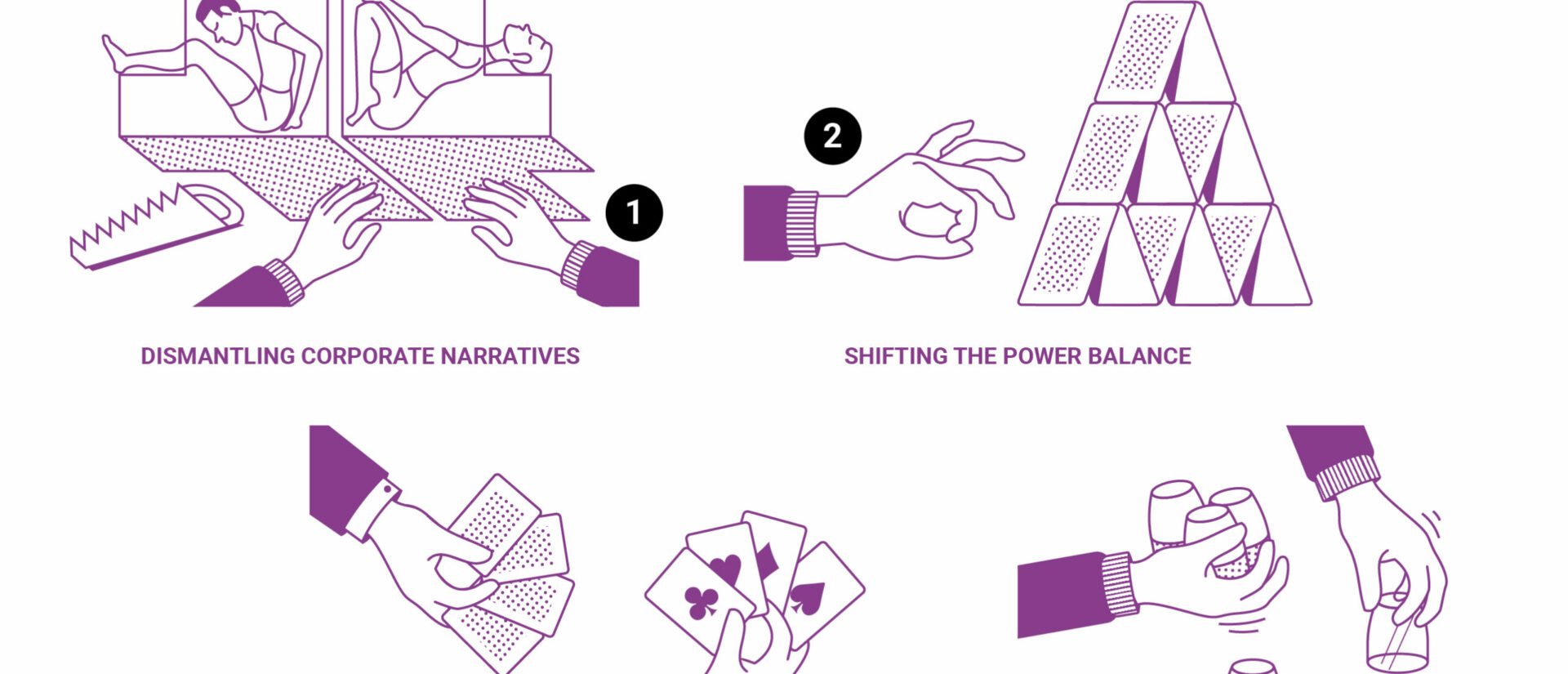
New civil society toolkit to counter harmful corporate strategies
The Mind the Gap project has launched a new toolkit for civil society to deal with strategies commonly used by corporations to avoid responsibility for human rights abuses and environmental damage across their supply chains. The counter-strategies toolkit(opens in new window) provides communities and activists with practical guidance in their quest for justice, as well as links to relevant tools and resources.
Across the world, communities, workers, activists, NGOs, and trade unions confront the negative impacts of business activities and corporate behaviour on a daily basis. But when they seek justice and accountability, they often encounter the harmful strategies that companies use to deny or avoid responsibility.
In working to overcome these harmful corporate strategies, civil society has learned much about how to counter them. Bringing this combined learning together, Mind the Gap has identified 11 counter-strategies, grouped into four main categories:
Dismantling corporate narratives
Many harmful corporate strategies rely on a narrative that separates the company from the harmful impacts, and therefore from responsibility and accountability. Dismantling corporate narratives can be useful for civil society to counter harmful strategies and draw attention to the responsibility of companies for human rights and environmental abuses. Civil society can conduct rebuttal research, directly challenging corporate claims, or reframe corporate harms to expose how these claims are themselves problematic.
Shifting the power balance
At the heart of many cases of corporate bad practice and impunity is the stark reality of huge power imbalances between multinational companies and the people they affect. Companies often use their power and influence to deny responsibility, offer tokenistic remedies, or avoid legal accountability. Shifting the power in favour of affected communities is critical when pursuing remedy. Civil society can put a spotlight on an issue or case by using international complaints mechanisms or engaging actors with leverage over companies. Expanding and amplifying community activism can also help empower people in their quest for justice.
Deploying legal counter-strategies
When activists, workers, communities, and civil society organisations try to stand up against powerful multinational corporations, inequality before the law is a common experience. Nevertheless, using the law can be an effective way to counter harmful corporate strategies, for example by bringing legal action in a home state, forcing information disclosure, and to counter abusive lawsuits filed by companies (SLAPPs).
Advancing corporate accountability norms
Work on individual cases is important but not sufficient to counter harmful corporate strategies. Civil society activists and organisations, lawyers, and researchers around the world generally agree that the best counter-strategy is to change the law and norms regulating corporate behaviour – to close the governance gaps and legal loopholes that allow companies to cause harm and avoid responsibility for their actions and omissions.
The toolkit can be used both to react to corporate harms that have already occurred and to prevent such harms from happening. Check out the entire toolkit(opens in new window) on mindthegap.ngo.
Do you need more information?
-

Virginia Sandjojo
Senior Policy and Advocacy Officer
Partners
-
Cividep India – Civil Initiatives for Development and Peace India
-
PODER – Project on Organizing, Development, Education and Research
-
Conectas
-
INKRISPENA
Related news
-

-
The Netherlands – still a tax haven Published on:
 Arnold MerkiesPosted in category:Publication
Arnold MerkiesPosted in category:Publication Arnold Merkies
Arnold Merkies
-
Chain of consequences Published on:
 Joshua RosenzweigPosted in category:Publication
Joshua RosenzweigPosted in category:Publication Joshua Rosenzweig
Joshua Rosenzweig


